Tag Archives: revenue management in hotel industry
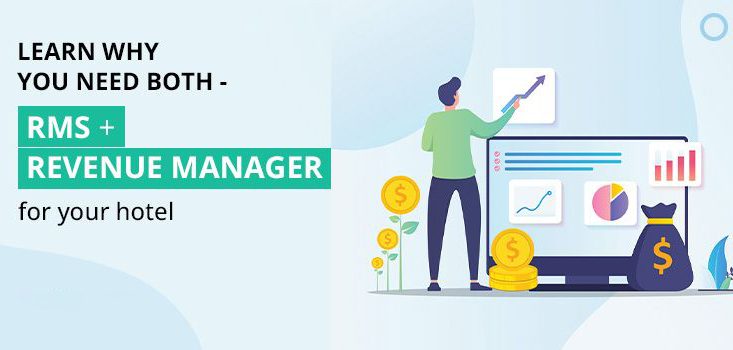
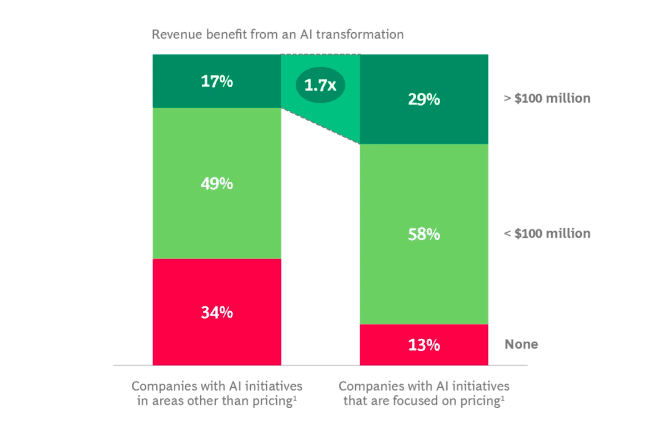
As per McKinsey, AI-based pricing can boost the value of the global market between $259.1 billion to $500 billion. But the crucial query is still open: can or should revenue management be fully automated? The answer is yes, but while this is true in theory, it is not always the case in reality. As per a recent MIT-BHI study, firms that, “undertook AI-driven pricing reforms achieved more than $100 million of revenue increase. 70% more often than firms that focused on another area”.
There are many bits of evidence around us, not only in travel. Need a few instances? Starbucks uses predictive analytics based on its data from over 90 million weekly transactions. While Amazon uses AI to drive dynamic pricing. Global brands like Coca-Cola have been using AI pricing for years.
The Ecole hôtelière de Lausanne hosted the 2019 edition of the Revenue Management and Pricing in Services Conference. Kevin Hof, Data Scientist at RoomPriceGenie, showed many case studies where hotels saw an average 22% increase in revenue by using a revenue management system. And similar results can be found in dozen other studies.
When it comes to using AI in revenue management and using new tech, the hotel sector is quite scattered. Many hotel owners continue to be cautious of their own pricing practices because they think that their past experience and intuition are better than any algorithm. The truth is that they don’t trust the things that they may not know, or cannot control like a human revenue manager. The conflict between tech and humans arises at that point. But rightly said, “the future of revenue management is a hybrid of human+tech cooperation.” – Silvia Cantarella, Founder of Revenue Acrobats.
Are you searching for revenue management companies for hotels or revenue management software for hotels? Want to outsource hotel management? Click below.
About Award-Winning Revenue Management Company in India
Types of A Revenue Management System
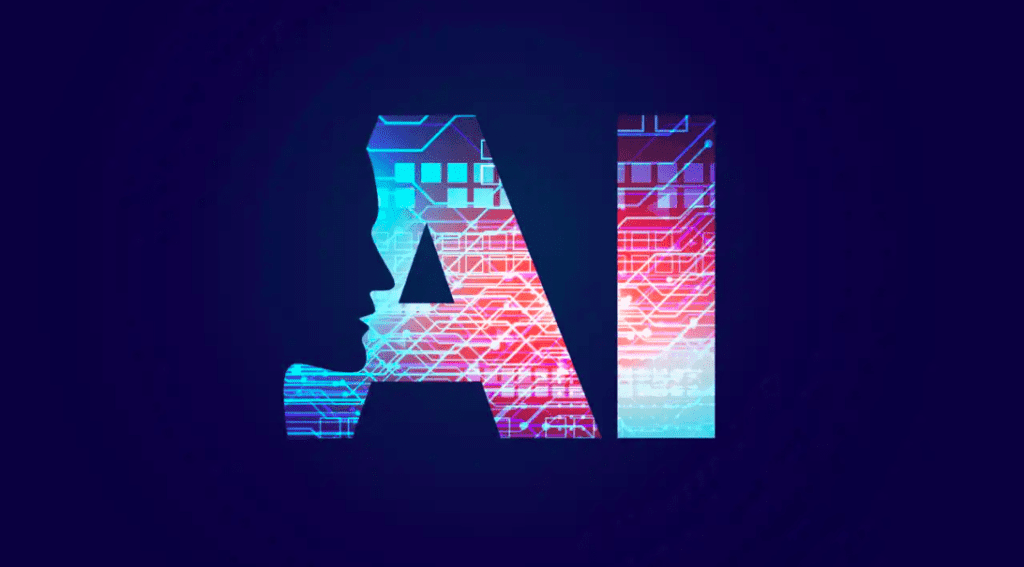
Image via https://hoteltechreport.com/
There are 2 types of revenue management tools. The first is “rule-based” and the second is “AI-driven (which remains true to rules but is more advanced as a result of AI).
1. Rule-based RMS: Because it minimizes revenue management in the hotel industry, this type may be used by anybody without prior experience, therefore it doesn’t truly require a revenue manager. Because it uses simple software, the results it produces are limited.
You as hotel owners are aware that there are many factors that impact the pricing strategy for hotels. A few examples are pick-ups, the weather, brand reputation, and the market sector, etc. The so-called “rule-based” employs a simple algorithm that controls one or two variables and auto-adjusts rates as needed.
On the other hand, the revenue management concept requires constant learning, market, and hotel changes. World events need testing, an AI-driven revenue management system, and a skilled revenue manager.
2. AI-driven RMS: It considers all of the variables. However, the most crucial part is that they use machine learning to study how humans (revenue managers) respond to these variables. In order to imitate their actions (raise or decrease prices and by how much, or leave them alone).
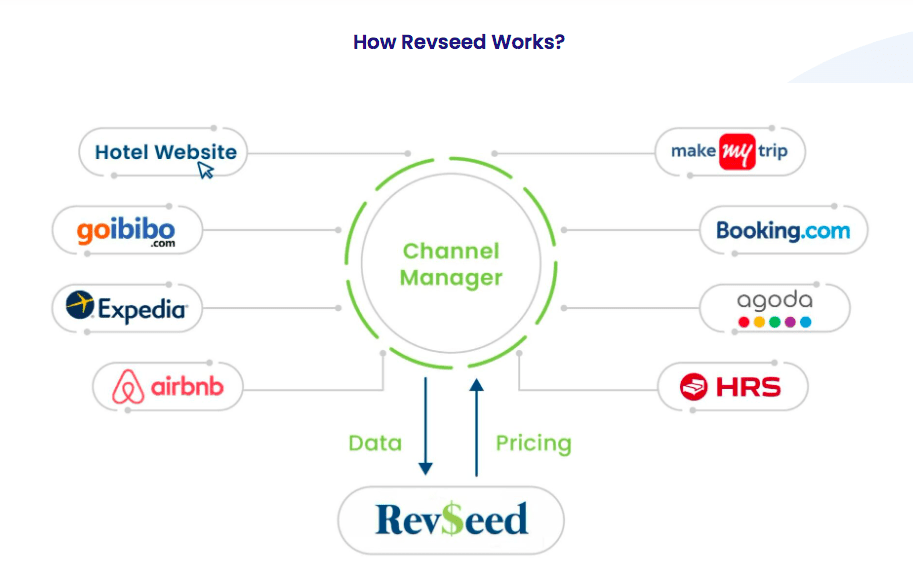
Whether they are chatbots, robots, or AI-enabled hotel RMS, the machines pick up data from the people who use them. They augment people, not replace them. Without revenue managers, the majority of modern RMSs would not even exist. Revenue managers serve as the “engineers” and teachers. Looking for free revenue management software or revenue management solutions for hotels? Click below.
Try Revseed – One of the Best Hotel Revenue Management Systems
The Role of a Revenue Management System in the Hospitality Industry
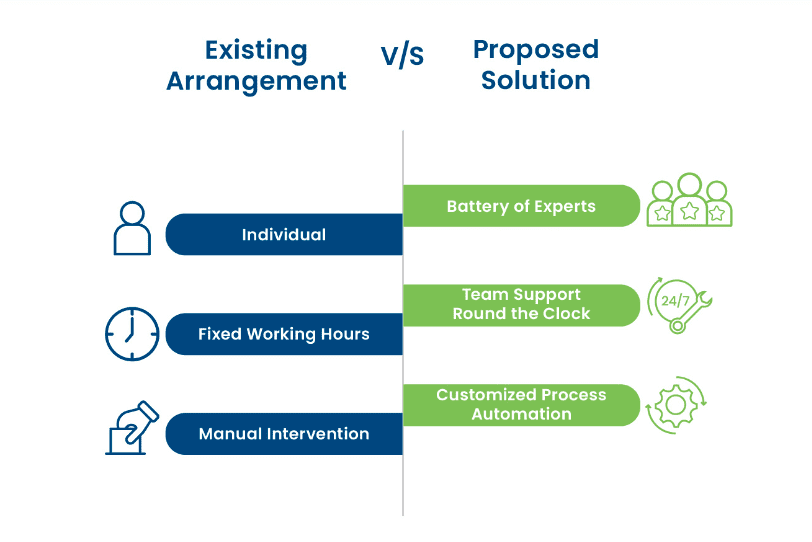
We have already discussed what is revenue management in hotel in previous articles. But are you aware? What is autopilot mode? By speeding up the collection of data and analysis, rate clarity, and online distribution, the revenue management system improves the Revenue Manager’s role. When this works well, it becomes possible to assist the revenue manager using what is referred to as “autopilot.” This autopilot aids in merging the duties of revenue managers, such as pricing when they are out of the office or ill or have to manage many hotels at once.
Due to this, the learning of AI-based RMSs must be often supported by skilled and savvy human revenue managers. The forecasts of your hotel revenue management system evolve based on the revenue manager’s learning of the data they input.
Did you know? An RMS is more than just advanced software that gathers, automates, and combines a variety of past, present, and future market data in order to forecast customer demand and offer rate advice. Hotels can know the best pricing at the best time for each market group and each room type thanks to this cross-section of data in a quick manner. A qualified revenue manager can run many reports using variable data to know the revenue potential based on changing elements.
Shall we put it another way? You need an RMS, but you need a revenue manager. To analyze the data, predict future trends, and make required changes based on rivals, demand, and previous data. Even the most powerful RMS cannot define a strategic path or add insights. Still, looking for revenue management companies in India or the best hotel revenue management software? Keep reading.
Request a Demo for Revenue Management Services
AI and ML are the basis of the revenue management system tools of today. As long as the revenue manager keeps feeding data into the system and makes changes in response to results, AI and ML cooperate and get more effective over time. Your revenue increases as the machine learning part learns to be better with room pricing.
While the RMS gives price ideas and simplifies data collection, it stops there, leaving strategic thinking to a human. They can choose the segments, set up the data for input, and offer a business strategy. Few hotel owners have the expertise or free time to analyze RMS data and make tactical changes. To make strategic decisions, revenue management integrates data analysis and business intelligence (BI).
Discover Revenue Management Outsourcing & Business Intelligence
The strategy is where revenue management as a discipline begins. The human revenue manager is able to read the data, create the right queries, and identify the changes to be made. The software is almost useless without humans. If you don’t know how to analyze demand, historic data, and rivals, it’s easy to enter the wrong data into the RMS.
Yes, you can achieve some results, but this method is futile, and you won’t achieve the best outcomes. For instance, with a few price changes from the revenue management system and good market conditions, if you’ve never used revenue management and have always had stable pricing, you’ll probably see some more revenue.
However, if you don’t include human strategic thinking, you won’t obtain as much as you could.
Explore Successful Hotel Revenue Management Strategies for Major Brands
Autopilot of a Revenue Management System & Human Intervention

Image via https://insights.ehotelier.com/
A revenue management system performs well when there are regular market patterns. But these past two years have put this idea to the test. For instance, in this article from Costar, some revenue managers who work for well-known American brands describe how they changed the RMS to boost sales during a financial crisis.
They disabled the autopilot, ignored the RMS’s rate ideas, and came up with creative ways to meet alternate demand and increase sales and profits without pricing. The Russian invasion of Ukraine is one recent instance. In some nations, many revenue managers have been forced to turn off autopilot and reassess their way forward and revenue strategy software.
Nobody can rule out other (good or bad) events in the future where revenue managers will need to stop the autopilot. And set up the manual mode, and always train the machines for a brief time. The software by itself is unable to provide insights into costs, staffing, and other crucial activities. That is beyond the powers of a machine.
As per some analysts, RMS will fully automate revenue management, meaning that no humans will be needed. These analysts often use the terms pricing and revenue management as synonyms. Yet, the more complex field of revenue management benefits is much bigger than pricing.
While most of the time pricing can and must be fully automated, the entire revenue management process cannot be. While each hotel has unique strategies for increasing revenue, price is just one among them. The process ends with that step. Pricing is merely an effect, not the root. By now, you should identify the effects of a revenue manager working with a machine. The combined revenue from human creativity and strategy and machine accuracy will soar.
Why Revenue Management is Important for Our Clients
How a Revenue Management System Helps Brand Reputation & Channel Distribution?
[Must Read: 12 Revenue Management KPIs for Hotels That You Must Use]
https://www.youtube.com/watch?v=0vxCuVhmg9c
Trying many distribution channels can also assist to boost sales. A human revenue manager can recognize the channels that draw many customers. These may create profits more than the 10% rise you saw with the software alone and may increase demand by 30%. It results in new suggested prices from the learning revenue management system.
Specific market segments or geographic areas favor certain channels. The human revenue manager will choose and include channels to affect pricing, demand, and the marketing mix. Here is a good example of how to control revenue using tech. Contrary to popular belief, many hotels give tour operators bookings at set prices months in advance. While others close the OTAs. The RMS is useless in such scenarios.
An RMS excels at routine tasks as a software tool. It does data analysis, makes pricing ideas, and drives prices through online channels. However, humans provide expert analysis. They can weigh factors like non-refundable prices and minimum stays against flexibility. The latter provides visibility and bookings online, over the phone, and offline.
The output varies each time the scenario is changed. A revenue manager may decide that adding extras or amenities like parking, a pool, a spa, or a better breakfast is worth it. Even current images and descriptions have the power to alter demand and pricing, and none of that can take place on autopilot.
Brand reputation is a powerful tool. Your hotel’s exposure is impacted by its rating on sites like Booking.com, TripAdvisor, etc. And high visibility often leads to increased demand, occupancy, and ADR.
Your revenue is impacted by the score on the OTAs. Consider that Tripadvisor has a 4.5 rating and Booking.com gives your hotel an 8.7. 15% more money is made after you deploy an RMS. That’s great, but what if you only have five positive reviews on Tripadvisor and nine on Booking.com? You could possibly increase your ADR and attain a 35% rise.
The software cannot solve that problem on its own. But a revenue manager may carry out changes to raise scores. They can provide the system with fresh data for improved repricing as well.
[Must Read: 6 Useful Reports by Revenue Management Software for Hotels]
Get 3x Results with a Revenue Management System & Revenue Manager Together
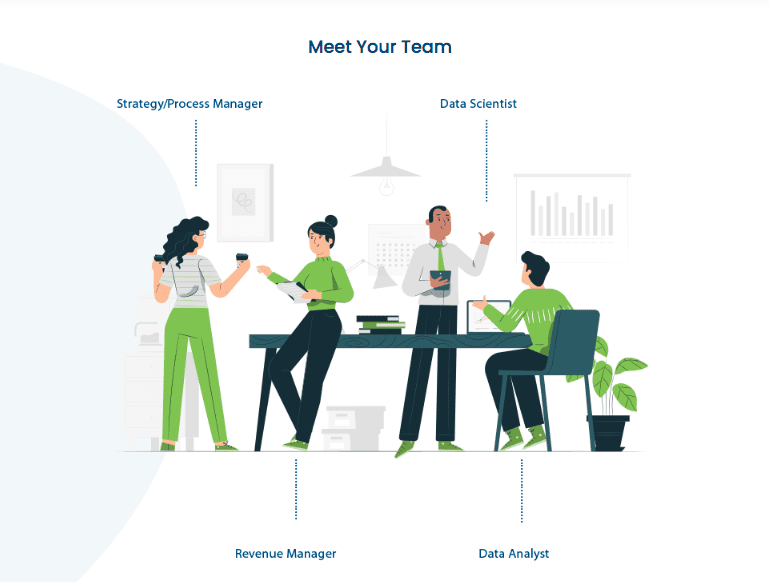
Consider yourself the general manager or owner of a small hotel. After reading up on revenue management, you’ve come to decide that dynamic pricing is the most effective strategy to raise room revenues every day of the year. However, it appears hard and steep that you don’t have a revenue manager on staff. And you may be thinking, why should I not try out this software?
You sign up for an RMS, but you soon realize that you have no idea which data to enter can get you great results. Are some of your double rooms, for instance, big enough for three to four people? Can you charge extra for them if you sell them as a family room or a suite?
Still, while claiming to have double rooms, you don’t set all of this data in the RMS. This implies that your output rather than possible results based on your room sizes and the time of year is a list of hotel rates based on the data you put in. Want the best revenue management company in India that offer skilled revenue managers?
A revenue manager adds strategic human thought. Say you often sell your rooms as doubles, but a revenue manager explains that some of the rooms might be marketed better. Maybe I could turn them into family rooms by adding an extra bed. If you alter the room type in this manner, the RMS will get new data and produce new results. The RMS will suggest a family room rate in this case based on a different amount of demand.
The key difference is that the end result is always the result of a human decision. The RMS learns its settings over time and improves at dynamic pricing. However, the software doesn’t inform you that you may offer the rooms in a different way, nor does it inform you of the finest revenue-generating channels for your business.
One thing is for certain: Revenue managers will never be replaced by RMSs. The simple fact is that revenue managers are the main software engineers and developers of all modern AI-driven revenue management systems. This is true whether you think of revenue management as in-house or outsourced work. So, why not hire the top hotel revenue management companies?
Do you want to outsource your revenue management strategy? Are you looking for the best revenue management systems for hotels? Do you want to know about new revenue management trends? Contact Revnomix, the top hotel revenue management company for hotel revenue management solutions. It helps to process data, make accurate decisions, and grow hotel revenue.